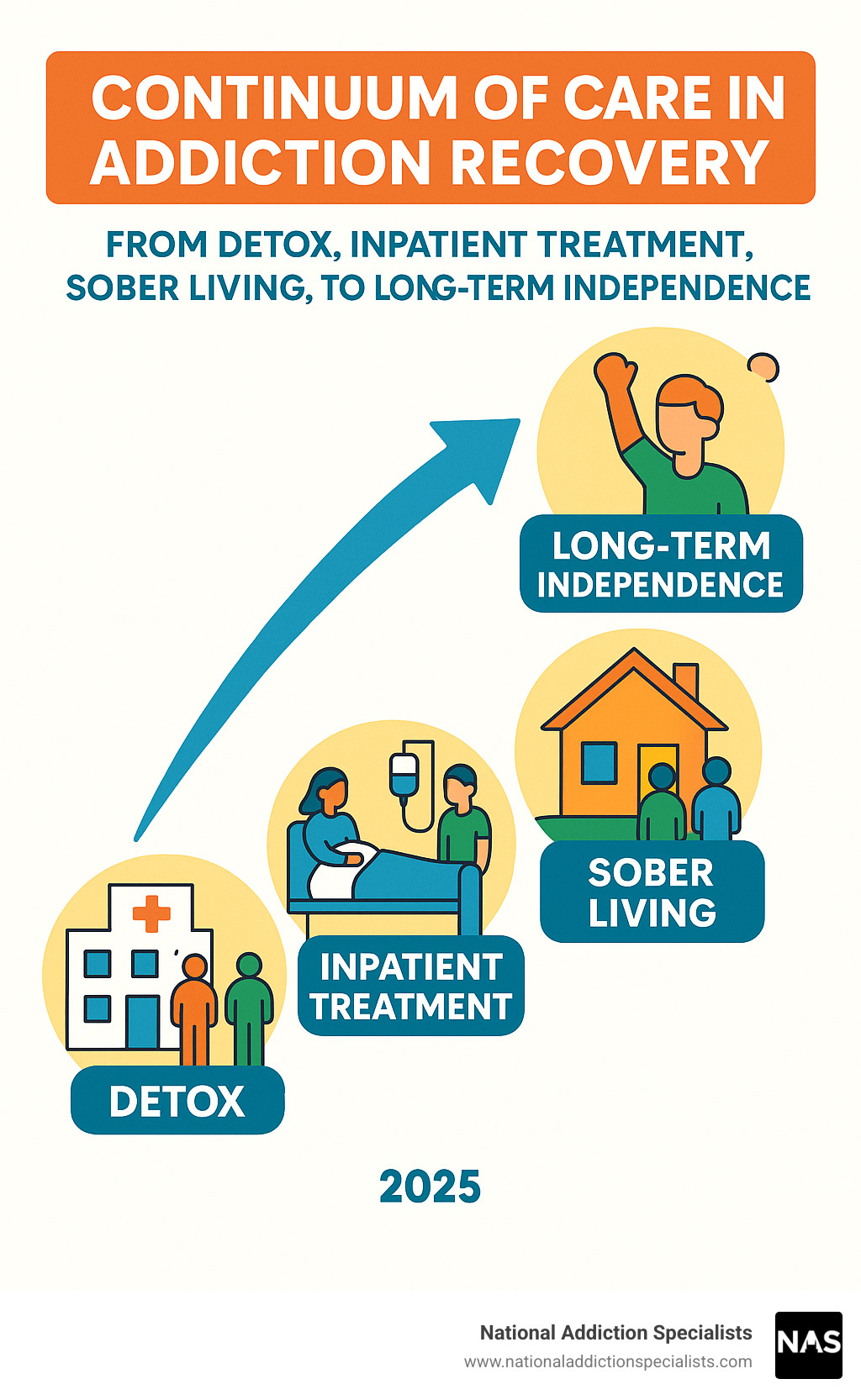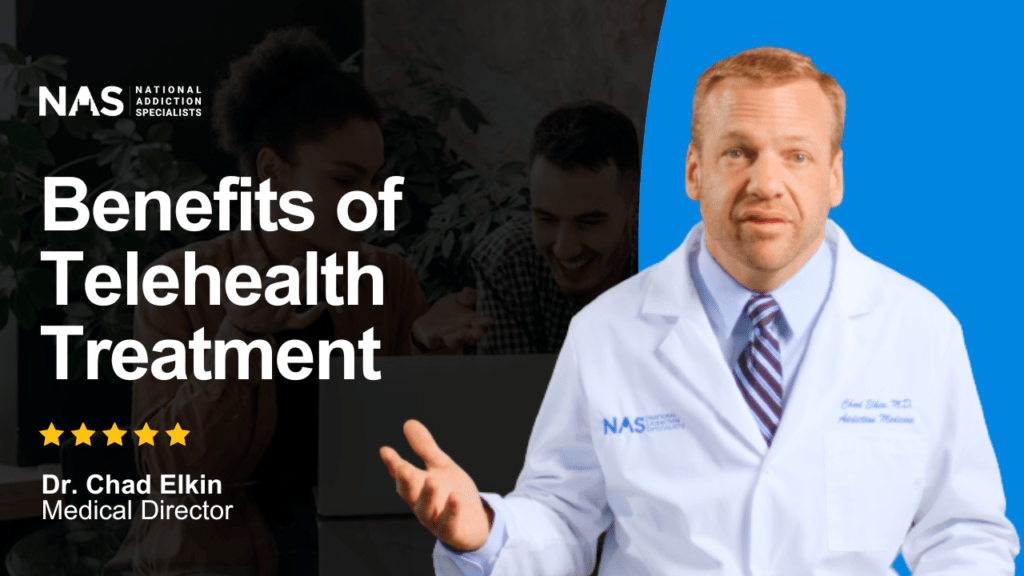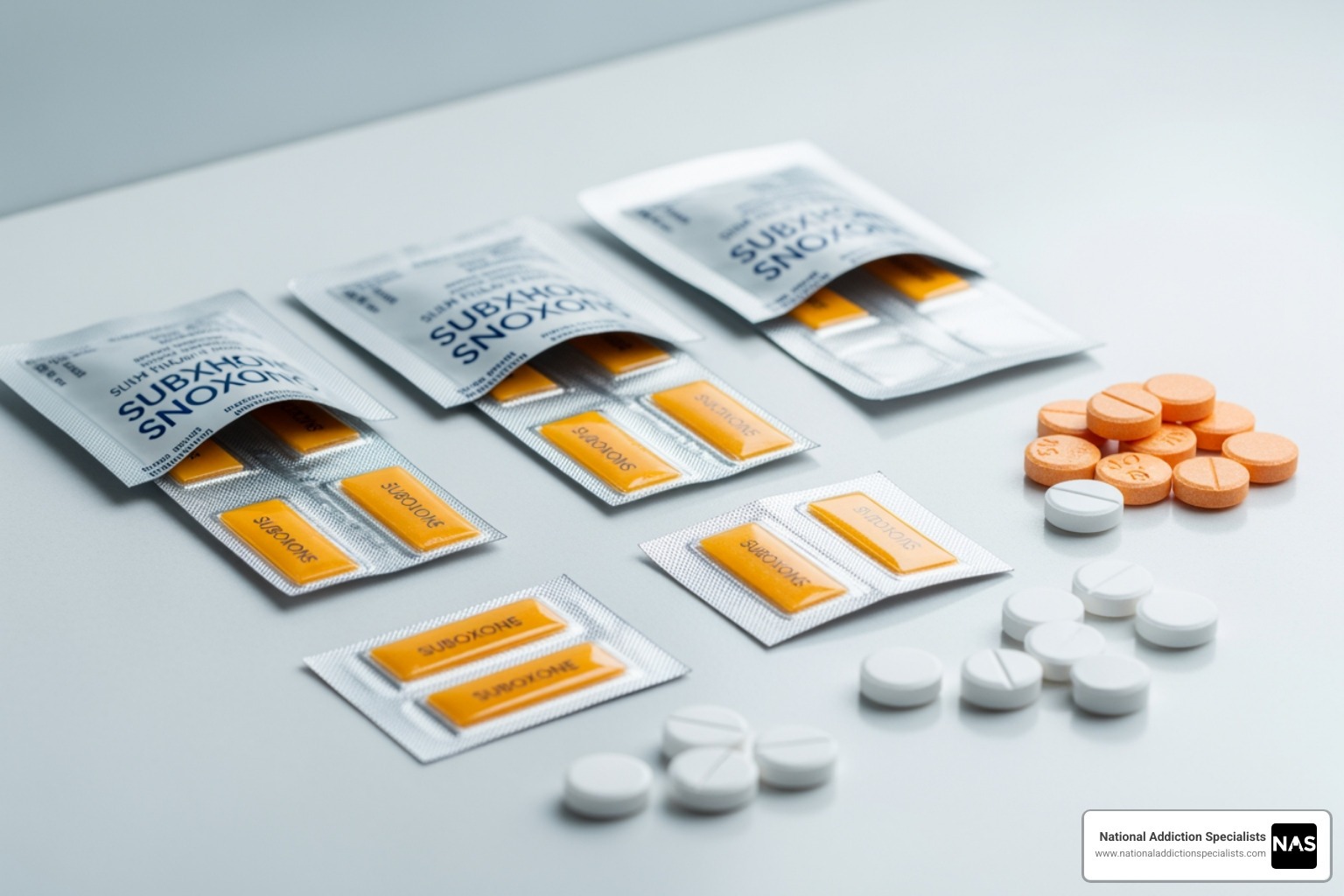Understanding Sober Living
The journey to lasting recovery often involves finding a supportive environment, and sober living offers just that. It’s a crucial step for many on their path to a fulfilling, substance-free life.
What is Sober Living?
- Sober living homes are alcohol- and drug-free residences.
- They are designed for individuals recovering from substance use disorders.
- These homes provide a structured, supportive environment without formal treatment services.
- They act as a bridge between intensive treatment and full independence.
These environments help individuals build a foundation for long-term sobriety. They offer a safe space to practice new skills and rejoin society.
As Founder and Medical Director of National Addiction Specialists, Dr. Chad Elkin brings deep expertise in addiction medicine, including the vital role of sober living in long-term recovery. His work on policies and guidelines within organizations like ASAM and TAADAS emphasizes comprehensive patient care, including supportive environments post-treatment.

What is a Sober Living Home and How Does It Work?
A sober living home (SLH) is a supportive, substance-free residence for individuals in recovery. It serves as a home base where residents share the common goal of lasting sobriety. The main purpose is to provide a stable, safe environment that bridges the gap between intensive rehab and independent living. Unlike treatment centers, SLHs do not offer medical services or have 24/7 medical staff. Instead, they operate on a “social model” of recovery, emphasizing strong peer support. Residents hold each other accountable for staying sober, following house rules, and working toward recovery goals. This structure helps individuals gently ease back into society.
While sober living provides a supportive home, it is most effective when combined with professional guidance like counseling and therapy. To see how our programs can complement your sober living experience, you can find More info about our Counseling Program.
Understanding the Different Levels of Sober Living
Sober living is not a one-size-fits-all solution; homes offer varying levels of support. The National Alliance for Recovery Residences (NARR) defines four common levels to meet different needs:
- Level 1: Peer-Run Homes: These are the most independent, with residents managing the house and supporting each other, often based on 12-step principles.
- Level 2: Monitored Homes: These homes have a house manager (often a peer in recovery) who ensures rules are followed and provides guidance. Formal clinical services are not provided.
- Level 3: Supervised Residences: Offering more structure, these homes have paid staff, such as certified peer specialists, who provide oversight, daily schedules, and life skills training.
- Level 4: Clinically Supervised Residences: The most structured level, these homes have licensed staff and may offer on-site clinical services, serving as a direct link from residential treatment to independent living.
To help you see the differences clearly, here’s a table comparing these levels:
| Feature | Level 1: Peer-Run Homes | Level 2: Monitored Homes | Level 3: Supervised Residences | Level 4: Clinically Supervised Residences |
|---|---|---|---|---|
| Supervision | Minimal, resident-led | House manager (peer) | Paid staff, certified peers | Credentialed staff, clinical oversight |
| Services Offered | Peer support, 12-step | Peer support, accountability | Life skills, structured schedule | On-site clinical services, intense structure |
| Autonomy | High | Moderate | Moderate-Low | Low |
| Cost | Generally lower | Moderate | Moderate-High | Highest |
| Funding | Resident fees | Resident fees | Resident fees, some grants | Resident fees, some insurance/grants |
What Sober Living Homes Do NOT Provide
Sober living homes are supportive residences, not medical facilities. They are not a replacement for professional care but are an excellent partner to outpatient treatment. They do NOT provide:
- Formal Clinical Treatment: Therapy and medical services are not offered on-site. Residents are encouraged to attend outside therapy or 12-step meetings.
- Medication Management: Residents are responsible for managing and taking their own prescribed medications.
- Detoxification Services: Detox requires medical supervision and is not performed in a sober living home.
- 24/7 Medical or Psychiatric Supervision: Staff are not licensed medical providers and do not offer clinical care.
A sober living home is a powerful component of a comprehensive recovery plan. If your plan includes Medication-Assisted Treatment (MAT), we encourage you to Learn about Medication-Assisted Treatment (MAT) to see how it complements a sober living environment.
Typical Rules and Expectations in a Sober Living Home
Sober living homes have clear rules to ensure a safe, focused environment that promotes accountability and personal growth. While specific rules vary, common expectations include:
- Strict Abstinence: A zero-tolerance policy for alcohol and illicit drugs is fundamental.
- Mandatory Drug Testing: Regular, often random, testing is conducted to enforce abstinence.
- No Violence or Threats: A respectful and safe environment is maintained for all residents.
- No Overnight Guests: This rule protects residents’ privacy and focus on recovery.
- Curfews: Especially for new residents, curfews help establish routine and accountability.
- Mandatory House Meetings: Regular meetings are held to foster communication and community.
- Participation in Chores: Residents share responsibility for house upkeep, promoting life skills.
- Productive Activity: A requirement to work, attend school, or participate in outpatient treatment encourages independence.
- Attendance at Support Meetings: Residents are typically required to attend 12-step meetings or outside therapy.
- Timely Payment of Fees: Paying rent on time builds financial responsibility.
These rules create the structure needed to improve the chances of long-term sobriety.
The Role of Sober Living in Long-Term Recovery
The journey to lasting recovery requires ongoing support and a new way of life. Sober living plays a key role by helping individuals maintain progress made in treatment and build a fulfilling, substance-free life. Key benefits include:
- Building a Sober Social Network: In a sober living home, you are surrounded by peers who share your goals. This supportive community helps you form healthy friendships away from old triggers.
- Developing Life Skills: Residents learn to manage daily responsibilities like finances, cooking, and cleaning in a substance-free setting. This practice builds independence and self-esteem.
- Preventing Relapse: Sober living acts as a crucial bridge between intensive treatment and full independence. This transitional period reduces the risk of relapse that can come with a sudden return to unstructured life. Scientific studies confirm that residents of sober living homes show significant improvements in sobriety, employment, and mental health, with peer support being a key factor.
Who Benefits Most from a Sober Living Environment?
A structured sober living environment is particularly beneficial for certain individuals. You may thrive in an SLH if you are:
- Leaving Inpatient Rehab: Transitioning from an intensive program back to daily life can be risky. A sober living home provides a supportive buffer, easing the return to independence.
- In an Unsupportive Home Environment: If your home life involves triggers or family members who use substances, an SLH offers a safe, sober alternative.
- Needing Continued Structure After Detox: Detox addresses the physical withdrawal, but recovery requires new habits. Sober living provides the daily routine needed to build a strong foundation in early sobriety.
- Managing Co-occurring Disorders: For those with both a substance use disorder and a mental health condition, the stability of a substance-free home is crucial for managing both effectively.
If you need more time and support to solidify your recovery, a sober living home is worth considering. For more insights, we invite you to Read our Drug Addiction Blog for more recovery stories.
Sober Living vs. Halfway Houses
The terms “sober living home” and “halfway house” are often used interchangeably, but they have key differences in origin, funding, and operation.
Sober living homes (SLHs) are typically private residences funded by resident fees. Entry is voluntary, and the focus is on peer support and community. A major distinction is the flexible length of stay, allowing residents to remain as long as needed while they follow the rules and build toward independence.
Halfway houses often have ties to the correctional system and may be government-funded. Residence can be court-ordered or a condition of parole. They generally have stricter rules, more direct supervision, and a time-limited stay (e.g., 6-12 months), with a focus on reintegration into society after incarceration.
Here’s a quick comparison to help you see the differences:
| Feature | Sober Living Homes (SLHs) | Halfway Houses |
|---|---|---|
| Voluntary vs. Mandated | Primarily voluntary; residents choose to live there | Often mandated (e.g., court-ordered, parole) |
| Funding Sources | Primarily resident fees (private) | Often government-funded (state, federal) |
| Length of Stay | No fixed time limits; can stay as long as needed | Often time-limited (e.g., 6-12 months) |
| Supervision Level | Varies by level (peer-run to clinically supervised) | Generally higher, more direct supervision |
| Connection to Formal Treatment | Encouraged but not typically provided on-site | May have stronger direct ties to formal treatment |
| Emphasis | Peer support, life skills, personal responsibility | Reintegration after incarceration/institutionalization |
Knowing these differences helps you pick the best transitional living environment for your own recovery needs.
Finding the Right Fit: How to Choose and Pay for a Sober Living Home
Choosing the right sober living home is a crucial step in your recovery. It’s about finding a supportive environment where you can rebuild your life.
- Research and Referrals: Start by researching local options online and asking for referrals from your treatment team, therapist, or doctor. They can often recommend reputable homes.
- Visit in Person: If possible, visit the home to get a feel for the atmosphere. Observe the cleanliness, the interactions between residents, and the engagement of the house manager.
- Assess the Environment: Ask about the house culture, daily routines, and whether the home caters to specific groups (e.g., men-only).
- Match the Structure to Your Needs: Ensure the home’s rules and level of structure align with your personal recovery needs.
- Check for Certifications: Prioritize homes that are certified to ensure they meet safety and ethical standards.
Certification and Standards for Quality
Sober living homes are not typically state-licensed like treatment centers, making third-party certification essential for ensuring quality and safety. The National Alliance for Recovery Residences (NARR) provides the national standard for ethical, safe, and peer-oriented recovery environments. Many states have NARR affiliates that certify local homes. A certified home demonstrates that it:
- Adheres to best practices in recovery support.
- Follows established safety and ethical standards.
- Maintains a primary focus on peer-based recovery.
- Is accountable to an external certifying body.
Prioritizing certified homes is a critical step in finding a quality residence. To see an example of these standards, you can Learn about NARR standards from a state affiliate.
Understanding the Costs and Financial Assistance
Understanding the costs of sober living is key to planning. Monthly fees are similar to rent, typically ranging from $500 to $900, but can be higher depending on location, amenities, and level of staffing. These fees usually cover housing, utilities, and basic supplies.
Unfortunately, most private health insurance plans do not cover sober living costs, as they are considered residential accommodations, not medical facilities. However, financial assistance may be available through:
- Sliding scale fees based on your income
- Scholarships or grants from non-profits
- Personal loans or family support
- State-specific funding programs
- Employment while residing in the home
Navigating finances can be overwhelming. While we don’t fund sober living, National Addiction Specialists makes expert treatment accessible by providing telemedicine-based care for opioid addiction and accepting both Medicaid and Medicare.
Make an Appointment to Treat Addiction
Please don’t hesitate. Make an appointment today.
https://www.nationaladdictionspecialists.com/new-patient-packet/
Frequently Asked Questions about Sober Living
We understand that choosing sober living is a big decision, and it’s normal to have questions. Here are answers to some common concerns.
How long can I stay in a sober living home?
Most sober living homes offer a flexible length of stay. Unlike programs with strict timelines, you can typically stay as long as you need, provided you follow house rules and pay your fees. The average stay is 6 months to a few years, giving you ample time to build a strong foundation for independence before moving on.
Can I continue my Medication-Assisted Treatment (MAT) while in a sober living home?
Yes, you can continue MAT, including medications like Suboxone®, in most sober living homes. While the home will not dispense or manage your medication, reputable homes are supportive of MAT as part of a comprehensive recovery plan. You will be responsible for managing your own medication as prescribed by your doctor. Be sure to discuss your MAT plan with the house manager before moving in.
What happens if I relapse while living in a sober home?
Most homes have a strict zero-tolerance policy for substance use to protect the safety and sobriety of all residents. If a relapse occurs, you will likely be asked to leave the home immediately. However, a good home will not leave you without options. They will typically provide referrals for a higher level of care, such as detox or inpatient treatment, and may allow you to return after you are stabilized and have renewed your commitment to recovery.
Your Path Forward with Structured Support
Sober living homes are an invaluable step on the journey to lasting recovery. They provide a structured, substance-free environment with strong peer support, helping individuals build life skills, confidence, and healthy routines before returning to full independence.
Combining a supportive home with expert clinical care creates a powerful foundation for success. While sober living provides a safe space, ongoing treatment like therapy and Medication-Assisted Treatment (MAT) addresses the core challenges of addiction. At National Addiction Specialists, we provide convenient, confidential, and expert telemedicine-based Suboxone treatment for opioid addiction in Tennessee and Virginia, ensuring you have access to the best possible care.
If you’re ready to take the next step in your recovery, we are here for you.
Find Addiction Specialists Near You
Schedule your addiction treatment consultation today
Make an Appointment to Treat Addiction
Please don’t hesitate. Make an appointment today.
https://www.nationaladdictionspecialists.com/new-patient-packet/
This article was medically reviewed by:
Chad Elkin, MD, DFASAM is a board-certified addiction medicine physician, founder, and Chief Medical Officer of National Addiction Specialists, dedicated to treating substance use disorders. A Distinguished Fellow of the American Society of Addiction Medicine (ASAM), Dr Elkin currently serves as President of the Tennessee Society of Addiction Medicine (TNSAM) and has held various leadership roles within the organization. Dr Elkin chairs ASAM’s Health Technology Subcommittee and is an active member of its Practice Management and Regulatory Affairs Committee, State Advocacy and Legislative Affairs Committee, and other committees. He also serves on the planning committee for the Vanderbilt Mid-South Addiction Conference. Committed to advancing evidence-based policy, Dr Elkin is Chairman of the Tennessee Association of Alcohol, Drug, & Other Addiction Services (TAADAS) Addiction Medicine Council, which collaborates with the TN Department of Mental Health & Substance Abuse Services (TDMHSAS). He has contributed to numerous local, state, and national task forces, helping develop professional guidelines, policies, and laws that align with best practices in addiction medicine. His work focuses on reducing addiction-related harm, combating stigma, and ensuring access to effective treatment.Passionate about the field of addiction medicine, he remains dedicated to shaping policy and enhancing patient care.
Suboxone® and Subutex® are a registered trademark of Indivior UK Limited. Any mention and reference of Suboxone® and Subutex® in this website is for informational purposes only and is not an endorsement or sponsorship by Indivior UK Limited.









